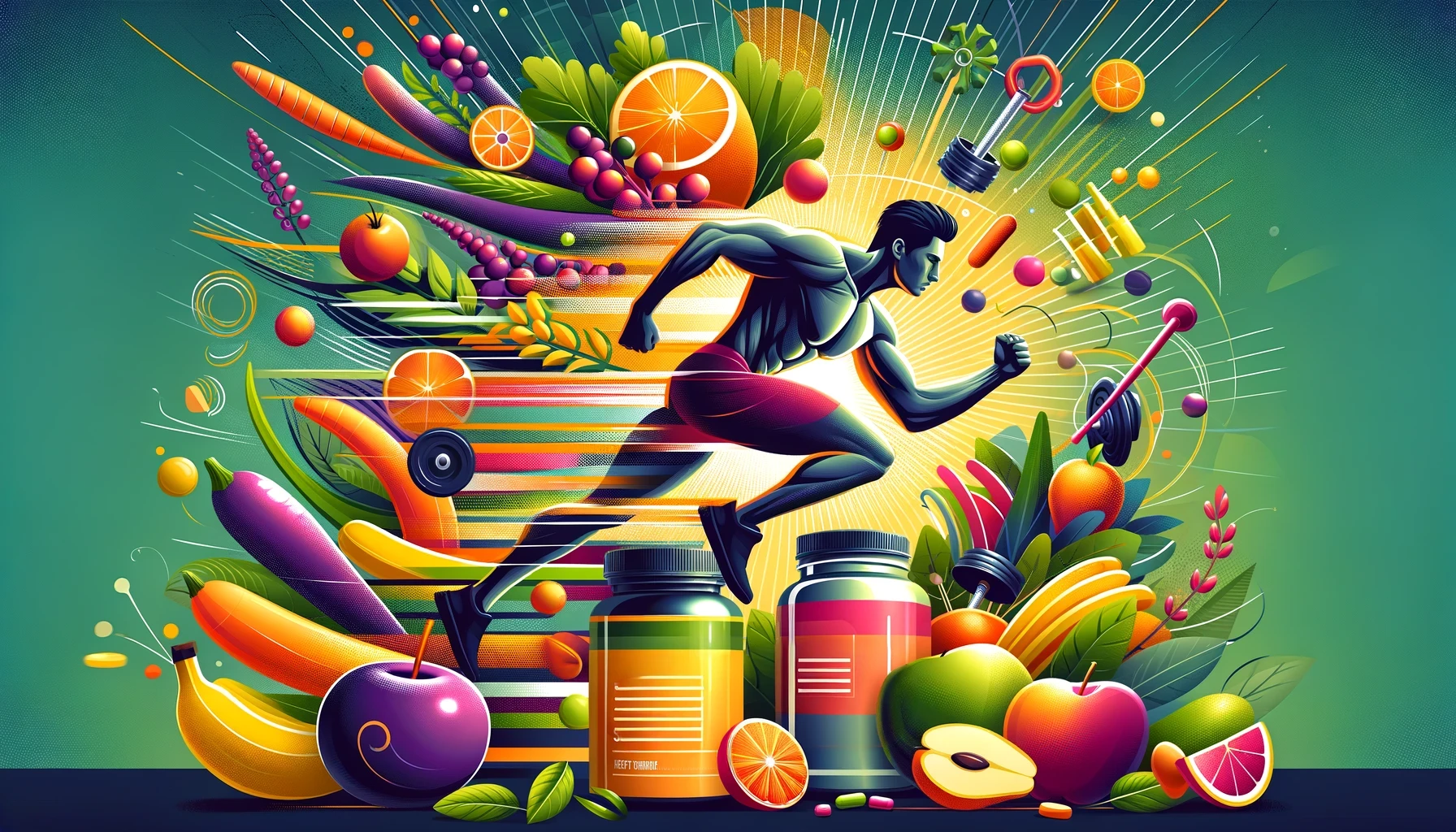PLANT powered Athletes

Transitioning to a plant-based diet can be a game-changer for many athletes, offering benefits like improved recovery times, increased energy levels, and a reduced environmental footprint. However, ensuring you receive all the necessary nutrients for optimal performance can be more challenging without animal products. Let’s explore the essential supplements that every vegan athlete should consider incorporating into their regimen.
Vitamin B12 is crucial for nerve function, red blood cell production, and DNA synthesis. As it’s primarily found in animal products, vegan athletes may be at risk of deficiency, which can lead to fatigue and weakness. Supplementing with B12 can help maintain energy levels and support overall health.
Iron is essential for oxygen transport in the blood and muscle metabolism. The body less easily absorbs plant-based sources of iron, so vegan athletes might need to pay extra attention to their iron levels. Iron supplements can be beneficial, especially for female athletes or those with diagnosed deficiencies. Pairing iron supplements with vitamin C can enhance absorption.
Omega-3s are important for heart health, brain function, and reducing inflammation. Vegan sources include flaxseeds, chia seeds, and walnuts, but these contain ALA (alpha-linolenic acid), which the body must convert into EPA and DHA. Since this conversion process can be inefficient, supplementing with algae-based omega-3 can provide direct sources of EPA and DHA.
Adequate protein intake is vital for muscle repair and growth. While it’s possible to meet protein needs on a vegan diet, athletes may require more protein than what diet alone provides, especially during periods of intense training. Vegan protein powders (pea, rice, hemp, or a blend) can help meet these increased demands.
Vitamin D plays a significant role in bone health, immune function, and muscle recovery. With limited vegan sources and the necessity of sunlight for its synthesis, supplementing with vitamin D, particularly during the winter months, can be beneficial for maintaining optimal levels.
Important for bone health, muscle function, and nerve signaling, calcium is another nutrient that vegan athletes should monitor closely. While there are plant-based sources of calcium, such as kale, broccoli, and fortified plant milks, supplementation may be necessary to meet the daily requirements, especially for those at risk of bone density issues.
Zinc is crucial for immunity, protein synthesis, and wound healing. Vegan sources like legumes, nuts, and seeds are abundant, but the bioavailability of zinc from these sources can be lower due to phytates, which inhibit absorption. A modest supplement can ensure you’re getting enough zinc, particularly during heavy training periods.
While a well-planned vegan diet can provide most of the nutrients required for athletic performance, supplementation can help bridge any gaps, ensuring that plant-powered athletes maintain peak performance and optimal health. Always consult with a healthcare provider or a dietitian before starting any supplement regimen to ensure it aligns with your specific health needs and goals.